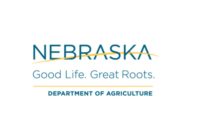CHARLESTON, S.C. — There’s a lot of federal, state and private grant funding available to help meat processors expand their operations, and having a clearly communicated goal along with strong documentation to support your expansion plan is the key to winning the nod for funding.
“It’s about finding a square peg for a square hole,” presenter Alex Freeman said during a grant funding workshop as part of the American Convention of Meat Processors & Suppliers' Exhibition July 13-15, 2023.
Freeman is part of Agriculture Grant Solutions, which he said has helped processors in 40 states secure grant funding totaling $200 million in the past three years. Freeman shared his perspective from his former role working as a grant manager for the Iowa Department of Agriculture and Land Stewardship.
“I scored grants from that side of the table, and I had about 15 minutes to look at your stuff and decide whether or not you got funded,” he said. “You have to tell the clearest story you can about why your business deserves the funds and how you’re going to be viable down the road.’
Presenter Isaac Keene, general manager of Summersville, Mo.-based Zimmerman Quality Meats, shared insights gained from his firsthand experience: the company has written grants using in-house staff and been awarded about $1 million in funding in the past two years, he said.
Zimmerman Quality Meats has about 30 employees and slaughters around 100 animals a week and just became a USDA-inspected processor a year and a half ago, Keene said. Zimmerman Quality Meats successfully sought funds through USDA’s Meat and Poultry Processing Expansion Program and USDA’s Meat and Poultry Inspection Readiness Grant.
“That helped us move from state to federal inspection,” he said.
“As a plant operator, there are a few places that I’m looking for funds that I’ve already given the government that are available for me to claim back,” he said, mentioning state and federal tax programs such as pandemic-relief funds that were available or research and development tax credits.
“If you guys are trying a new recipe you ought to be writing down how many pounds of meat you used and who’s doing it so at the end of the year you can turn that in and get that money back for a federal research and development tax credit,” Keene said. He said Missouri’s state ag department has a similar state tax credit for business expansion. He said these types of available credits or refunds have brought in more than $100,000 to Zimmerman Quality Meats within the past two years.
Grant funding sources need not be food- or ag-specific. Meat processing operations are considered manufacturers, making processors eligible for incentive programs targeted to support manufacturing, Keene said.
Private funding available from groups such as state associations is another possible source for grant money, Keene, said, mentioning the Missouri Association of Meat Processors offers funding for professional development.
The presenters offered these suggestions for successfully securing grant funding:
- Be proactive — Nurture relationships, stockpile data and listen attentively.
- Speak confidently — Grants do not go to projects that “need” momentum. They go to projects that “have” momentum.
- Count the cost — Grant administration has real cost. A grant-funded project will always cost more than a self-funded project.
- Be prepared to match the grant maker’s pace — By accepting third-party funding you have accepted third-party constraints.
- Remember the grant maker’s purpose — They are funding their purpose, not yours.
- Answer all the questions — Incomplete and/or non-compliant grant applications will be rejected.
- Be specific, measurable and realistic — Avoid ambiguous, abstract or wishful statements.
Grants are not without their constraints, and the presenters advised grant seekers to watch carefully:
- Procurement obligations — Prevailing wage, competitive bidding and public visibility.
- Contract encumbrances — Title, liens and bonding.
- Regulatory oversight — Federal and state agencies overseeing food safety.
- Funding draws/matching funds — Reimbursement, retainage and other funding.

.png?height=96&t=1647275041&width=96)



Report Abusive Comment